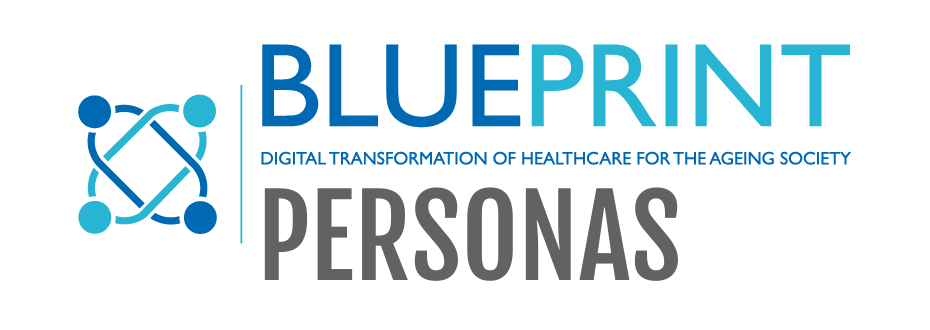Ben

Name
Ben
Age
9
Country
United Kingdom
Area
urban
Life course
child
Need
Complex needs
Connectivity
broadband, tablet
Ben was born with Down’s Syndrome. He is the middle of 3 children and lives with his parents who both work. He attends his local primary school and receives support from teaching assistants. He was also diagnosed with atrioventricular septal defect (AVSD) at an early age and underwent cardiac surgery to fix it. His condition has been affected by the fact that he has mild bilateral cataracts and needs to wear bifocal glasses, Ben also has hearing loss and wears a bone anchored hearing aid (Baha). Like many children born with Down’s Syndrome, Ben has delayed fine and gross motor skills and writing is particularly difficult for him. He loves to eat and is now overweight and his parents and teachers are trying to encourage him to exercise regularly.
Internet usage
Mobile device skills
Affinity to new tech
Digital Health Literacy
Assistance (ICT use)
What's important to Ben
– Having a regular and predictable routine.
– Spoken instructions complemented with visual prompts and cues; having a visual timetable for the day.
– Being independent; doing things by himself.
– Spoken instructions complemented with visual prompts and cues; having a visual timetable for the day.
– Being independent; doing things by himself.
Health concerns
– Down syndrome.
– Heart condition.
– Increasing weight; risk of diabetes.
– Worsening eyesight and hearing.
– Delayed motor skills.
– Heart condition.
– Increasing weight; risk of diabetes.
– Worsening eyesight and hearing.
– Delayed motor skills.
Daily living
– Breaking his routine upsets him.
– Often forgets to pack all the necessary things for school or other activities.
– He cannot read very well, especially numbers can be difficult. He prefers symbols instead of text (his visual processing and visual memory skills are his strength).
– Often forgets to pack all the necessary things for school or other activities.
– He cannot read very well, especially numbers can be difficult. He prefers symbols instead of text (his visual processing and visual memory skills are his strength).
Health tests
– Weight checks.
– Blood sugar.
– Regular Electrocardiograms (ECGs).
– Annual eye test.
– Annual hearing test.
– Blood sugar.
– Regular Electrocardiograms (ECGs).
– Annual eye test.
– Annual hearing test.
Events, issues & personal concerns
– Not forgetting to bring necessary things with him (to school, etc).
– Reducing his anxiety associated with changes in his routine.
– Not eating healthy foods or eating too much.
– Not getting enough exercise.
– Reducing his anxiety associated with changes in his routine.
– Not eating healthy foods or eating too much.
– Not getting enough exercise.
Treatment: medications, therapies, etc.
– Pills for his heart condition.
– Eye drops for his eyes.
– Physiotherapy to encourage motor skills development and exercise regime.
– Dietician to oversee his diet.
– Speech and language therapy for his speech.
– Eye drops for his eyes.
– Physiotherapy to encourage motor skills development and exercise regime.
– Dietician to oversee his diet.
– Speech and language therapy for his speech.
Own resources & assets / support
– Older brother encourages him to swim and exercise.
– School provides learning support for him during classes.
– Attends a local youth club which he enjoys very much.
– Very close to his family and relatives.
– School provides learning support for him during classes.
– Attends a local youth club which he enjoys very much.
– Very close to his family and relatives.
Care professional concerns
– Developing diabetes because of an unhealthy diet.
– Developing mobility problems due to lack of regular exercise.
– Developing heart-related complications.
– Community physiotherapy and speech & language therapy services are not available in secondary schools (there is a lack of ongoing support for when he transitions to secondary education).
– Developing mobility problems due to lack of regular exercise.
– Developing heart-related complications.
– Community physiotherapy and speech & language therapy services are not available in secondary schools (there is a lack of ongoing support for when he transitions to secondary education).
Needs
– Appropriate adaptations to facilitate internet use on tablet or school PC (he has difficulty with reading and writing so requires voice activated software).
– Regular communication between carers (family, school, doctors).
– Assistance with learning how to organise himself (i.e. an app with schedule reminders).
– Healthy lifestyle information for his family.
– Regular communication between carers (family, school, doctors).
– Assistance with learning how to organise himself (i.e. an app with schedule reminders).
– Healthy lifestyle information for his family.
